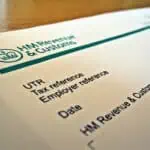New OSS (One Stop Shop) EU VAT rules for UK e-commerce
Reading Time:
As of 1st of July 2021, any company selling goods to EU customers had to comply with significant new VAT regulations.
All Business to Consumer (B2C) sellers dispatching goods from a single country will not be required to register for foreign VAT and complete multiple VAT filings in countries selling. Instead, they may complete and file a new One-Stop-Shop (OSS) filing in conjunction with their regular pan-EU sales domestic sales VAT return.
The seller then sends the VAT due to their home VAT authority, passing the taxes to the relevant countries. Non-EU sellers can apply to use the OSS regime and nominate any single EU state to register with.
This change is to simplify the barriers to cross-border online sales and, in particular, to address the administrative challenges that arise doing business across multiple VAT regimes on the sale of goods and issues around low sale imports that have impacted the revenues of EU countries.
In this article we outline the three key changes which may impact your business:

1-The VAT One Stop Shop (OSS).
From 1st July 2021, the Mini One Stop Shop (MOSS) extended to all business-to-consumer (B2C) services in the EU Member States where the supplier is not established. In addition, this new One Stop Shop (OSS) will also apply to all distance sales of goods within the EU.
Currently, the MOSS covers B2C supplies of broadcasting, telecommunication, and electronically supplied services. The scope of the OSS will now include these but, in addition:

- Services supplied by online marketplaces.
- The VAT distance selling regulations currently cover supplies of goods sold to final consumers (B2C).
- Other services are supplied on a B2C basis.
A business opting to register for OSS will be able to do so once in any EU member state or the UK if it is VAT registered in the EU or is trading with the EU under the Northern Ireland Protocol.
The creation of OSS for B2C suppliers of services and goods removes the requirement for any business to have multiple VAT registrations and reporting obligations in the EU. Therefore, a single quarterly payment and VAT return will be due for the supplies covered by OSS, rather than generating multiple local returns and processing continual payments.
Which OSS scheme applies to your business?
Different VAT schemes apply for eCommerce businesses depending on the type of activity and country of establishment.
Businesses already established in the EU can use the Union scheme and the Import scheme. In contrast, taxable individuals persons who are not established in the EU can use all three schemes, i.e., the Non-Union, the Union, and the Import scheme.
How does each OSS scheme work?
- Non-Union scheme: This allows non-EU businesses to register in a single country and report all services sales to individuals in a single VAT return. This scheme initially only applied to electronic services but is now available to all services, including entrance to events, transport services, etc.
- Union scheme: Allows EU and Non-EU businesses to report their goods from their home country to a final customer in another EU country in a single VAT return.
- Import scheme: Allows exempt imports of products sold to private individuals in foreign EU countries when the shipment is below 150€. The customs declaration is also simplified. If the value is above 150€, standard rules apply (full customs declaration and import paid at the border, VAT registration may be required).
It is important to know which transactions can be reported in the Union One-Stop Shop versus the Non-Union One Stop Shop.
| Non-EU established taxable person/supplier | EU established taxable person/supplier | |
|---|---|---|
| Supplies of services to consumers (B2C) | Non-Union scheme (OSS) | Union scheme (OSS) |
| Distance sales of goods within the EU | Union scheme (OSS) | Union scheme (OSS) |
| Domestic supplies Of Goods by Deemed Suppliers | Union scheme (OSS) | Union scheme (OSS) |
The OSS filing will be a quarterly return. It is intended as a simple listing to declare VAT due by the seller to each EU country apart from the domestic state. The OSS return will be standardised across all the EU member states and will be structured as follows:
Example OSS return from July 2021
| Member state | VAT rate type | VAT rate in member state | The total value of supplies excluding VAT | VAT due |
|---|---|---|---|---|
| France | Standard | 20% | €238,000 | €47,600 |
| Reduced | 5% | €15,000 | €750 | |
| Germany | Standard | 19% | €340,000 | €64,600 |
| Reduced | 7% | €0 | €0 | |
| Spain | Standard | 21% | €123,000 | €25,830 |
| Reduced | 10% | €4,500 | €450 | |
| Poland | Standard | 23% | €8,000 | €1,840 |
| Reduced | 8% | €0 | €0 | |
| Total VAT due | €141,070 |
Launching the single OSS EU VAT return
Sellers holding stock in other EU countries will not benefit from the OSS single return simplification, mainly because they must remain VAT registered in each country where they hold stock which applies to those sellers using the Amazon FBA program.
Sellers can continue to declare any sales to customers in their own country through their existing domestic VAT return. You may also use OSS to report cross-border B2C traditional services and specific domestic sales facilitated by marketplaces.
For UK traders, only those who operate under the terms of the Northern Ireland Protocol are VAT-registered and sell goods that total more than £8,818 (€10,000) per year to consumers in EU Countries from Northern Ireland eligible to register for the OSS.
Non-EU Sellers
Sellers who do not reside in the EU may also use the OSS simplified filing. They must first register as a ‘non-union taxpayer with the tax authority of any EU member state and then file quarterly OSS filings like any EU e-commerce seller. You are required to file a regular domestic VAT return in at least one EU member state, and VAT incurred on imports may be declared in the OSS too.
What will this mean for a typical seller?
The example below shows the impact on a typical EU seller and their VAT filing obligations before the 1st of July and since the changes have been implemented.
Example: Eurotrade GmbH, established in Germany, sells online to consumers across the EU. It holds most of its stock in Germany, from where it ships. However, it holds some stock in France for speedy delivery to its French consumers.
Eurotrade GmbH annual sales and VAT obligations are as follows:
| Country | Annual sales | Up to 30th June | 1st July 2021 | ||||
|---|---|---|---|---|---|---|---|
| VAT return | VAT % | VAT return | VAT % | ||||
| Germany | €780,000 | German domestic VAT return | German 19% | German domestic VAT return | German 19% | ||
| Spain | €54,000 | 1 | Spanish VAT return | Spanish 21% | OSS | Spanish 21% | |
| Italy | €42,000 | 1 | Italy VAT return | Italian 22% | OSS | Italian 22% | |
| Hungary | €23,000 | 2 | German domestic VAT return | German 19% | OSS | Hungarian 27% | |
| Luxembourg | €75,000 | 2 | German domestic VAT return | German 19% | OSS | Luxembourg 17% | |
| France | €75,000 | 3 | German domestic VAT return | French 20% | French VAT return | French 20% |
1 – Pre-July 2021 the Distance Selling Threshold so must foreign VAT register; post-July 2021 may close this registration
2 – Pre-July below the Distance Selling Threshold, so report sales under German rules; post-July 2021 switches to foreign VAT, reported via OSS
3 – Pre-July holding stock in a foreign country so must VAT register there; post-July 2021 must remain foreign VAT registered in France.
Who can use the Union scheme (OSS), and for which supplies?
A taxable individual established in the EU (who has not deemed a supplier) can use the Union OSS for:
- Supplier of B2C services taking place in a member state in which they are not established.
- Distance sales of goods within the EU.
A taxable individual not established in the EU for:
- Distance sales of goods within the EU.
An electronic interface (established in the EU or outside the EU) facilitating supplies of goods (deemed supplier) for:
- Distance sales of goods within the EU.
- Certain domestic supplies of goods.
Brexit – the effect on UK and EU sellers
From the 1st July 2021, eCommerce reforms will mean UK resident sellers will have to register in an EU state to file a ‘non-union OSS return and still close any EU VAT registrations if they are not holding stock in those states.
UK sellers selling to EU customers should consider appointing a VAT fiscal representative in the EU countries registered for the non-union OSS return.
2-The new Import One Stop Shop (IOSS)
The Import One Stop Shop (IOSS) is the electronic portal businesses can use from 1 July 2021 to comply with their VAT e-commerce obligations on distance sales of imported goods.
The IOSS allows suppliers selling imported goods to buyers in the EU to collect, declare and pay the VAT to the tax authorities instead of making the buyer pay the VAT the moment the goods are imported into the EU.
A business not established in the EU or Northern Ireland wishing to register for IOSS will do so in an EU member state or the UK.
Furthermore, VAT-registered UK businesses that are also IOSS-registered and sell goods to customers in Northern Ireland in consignments of less than £135 will be able to pay any VAT due via their IOSS return and report their IOSS number to HMRC before the goods move to Northern Ireland.
If businesses are not based in the EU, they will generally need to appoint an EU-established intermediary to fulfil their VAT obligations under IOSS. The IOSS registration is valid for all distance sales of imported goods to buyers in the EU.
For further guidance on IOSS provided by the European Commission and HMRC on EU VAT see the links below:
- European Commission Business VAT IOSS
- UK Government EU VAT e-commerce package
- Marosa: Applicable OSS schemes in EU ecommerce sales

3- Ending the distance selling threshold rules
If you have been running an online business for many years and selling goods EU wide, you are probably very familiar with the concept of ‘distance selling thresholds.
In summary, these are individual thresholds set by each EU member state which can range from EUR35,000 and EUR100,000 and vary from country to country. In addition, to reduce the administrative burden on small sellers, the EU will now operate a notable VAT registration simplification for e-commerce, known as distance selling thresholds, generally only available for sales from a seller’s domestic stocks.
VAT registered businesses must keep records of all sales made over a calendar year to non-taxable individuals based in the EU, ensuring they are aware of when they might breach the distance selling threshold. Once the threshold is breached, the supplier must register and account for VAT on all future sales of goods in the country’s authorities. Businesses may consider voluntarily registering and accounting for VAT in another EU member state if they wish to before they exceed the distance selling threshold.
EU distance selling thresholds up to June 2021:
- €100,000 per annum: Germany; the Netherlands; Luxembourg; UK which is still in the EU VAT regime (£70,000).
- For all other members of the EU, it is €35,000 per annum or local currency equivalent.
As of the 1st July 2021, the registration threshold simplification was withdrawn, meaning cross-border sellers started charging the VAT rate appropriate to the customer’s country of residence and submitted it to the foreign tax authorities.
If you require further information or would like to discuss the new EU VAT rules in more detail, please contact us on 020 8577 0200






